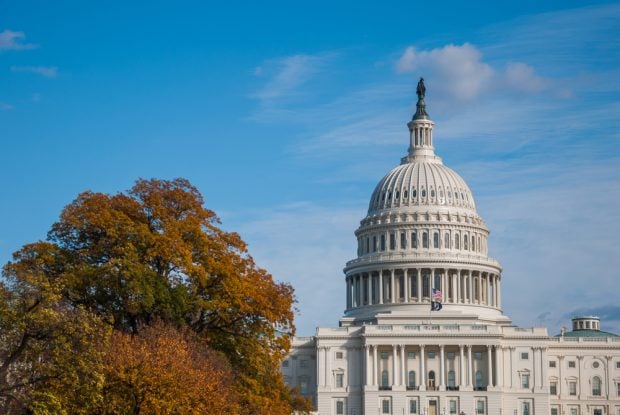
The tax and spending bill that passed a procedural vote in the Senate on Saturday night "may hit a big beautiful pothole after the Senate passes it, probably tomorrow," according to Greg Valliere, chief U.S. policy strategist for AGF Investments.
Why?
Recommended For You
"The Senate measure is filled with accounting gimmicks and actually would raise the deficit by $3.3 trillion over ten years, and House budget hawks don’t want to vote for it," Valliere wrote Monday in his morning newsletter. "As of this morning, there aren’t enough votes for the measure in the House, which passed it by one vote earlier this month."
On Monday morning, Senate Democrats launched what's being called a marathon voting session on amendments to the bill.
Valliere predicted that "after several hours of introducing amendments the full Senate will pass the bill, perhaps tonight. Then things will get tricky. The measure will be sent to the House, where there’s very soft support for the Senate measure, especially Medicaid cuts."
As expected, "there are clear and significant differences between the House and Senate bills," added Jeff Bush of The Washington Update. "House Republicans, under pressure from their self-imposed July 4 deadline, are trying to avoid a formal conference process. Instead, they hope to fast-track the legislation by persuading their members to accept whatever version the Senate sends over. This last-minute rush — relying on pressure, political maneuvering, and party discipline — has sadly become a familiar pattern."
The challenge: President Donald Trump and House Speaker Mike Johnson must rally enough House Republicans to support the Senate version, Bush said Monday in an email.
"This will be difficult because of several sticking points: the Senate bill includes deeper Medicaid cuts, lowers the income limits to claim up to a $40,000 SALT cap, increases the deficit further, and introduces shorter-term tax cliffs,"Bush said. "Each of these issues could generate divisions within the GOP conference and threaten the vote count."
Complicating the process, Valliere said, is the new price tag for the bill "from the Congressional Budget office — costing over $3 trillion — which will simply get ignored in the final bill. Yes, the bill eventually will get enacted, and the accounting gimmick will simply be ignored. U.S. debt will exceed $40 trillion by the end of this decade."
Public opinion has also "veered sharply to opposition," Valliere added. "A half dozen polls this past weekend showed the bill is opposed by 20 to 30 percentage points."
While momentum to pass the bill is building in the House, Bush said, "I’m not entirely confident it’s there yet. We’ll have a clearer picture as the week goes on."
What's in the Senate Bill
Most tax provisions are retroactive to the 2025 tax year, Bush said.
"As a result, many Americans — across income levels — are likely to see larger-than-expected refunds when they file, creating a temporary surge in satisfaction," Bush explained. "However, as the full impact of the bill takes effect, lower-income households in particular may begin to feel the negative effects of spending cuts. That could shift public sentiment heading into the 2026 midterms."
The House, Bush continued, "remains the main battleground in the 2026 midterm elections."
Democrats "have a better-than-even chance of winning it back, especially with Rep. Don Bacon retiring from Nebraska’s 2nd District (Omaha)," Bush added. "While Sen. Thom Tillis’ retirement makes North Carolina more competitive, the GOP is still in a strong position to maintain its Senate majority."
© Touchpoint Markets, All Rights Reserved. Request academic re-use from www.copyright.com. All other uses, submit a request to [email protected]. For more inforrmation visit Asset & Logo Licensing.






